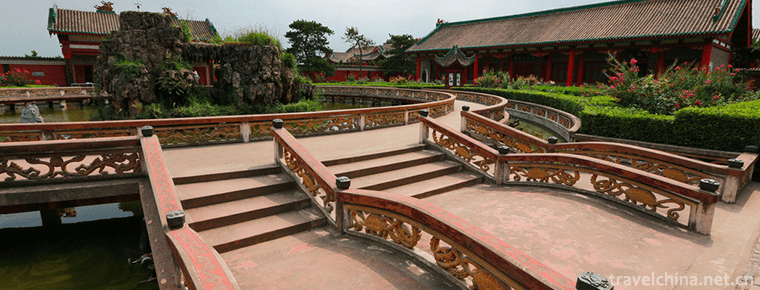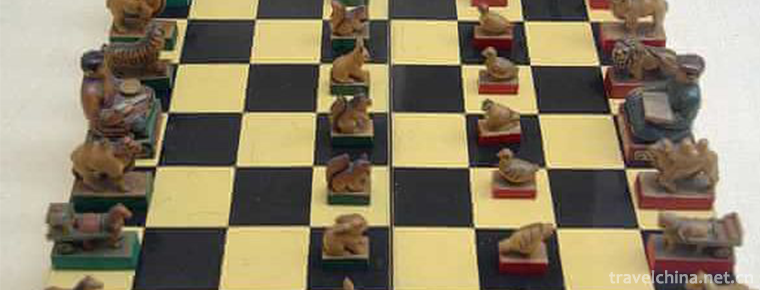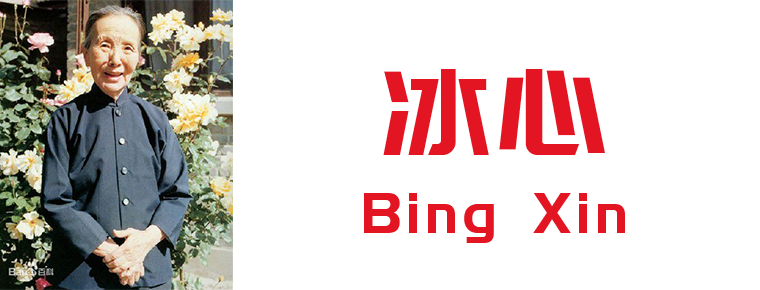Beijing Foreign Studies University
Beijing Foreign Studies University
Beijing Foreign Studies University is located in the West Third Ring Road north of Haidian District, Beijing. On the two sides of the three ring road, there are two East and West campuses, which are directly under the Ministry of education, the first "211 Project" universities, the 985 "dominant disciplines innovation platform" and the first batch of first-class disciplines.
The school is the first foreign language university founded by the Communist Party of China. Its predecessor was the Russian team of the three branch of the Chinese Anti Japanese military and Political University, founded in Yanan in 1941, and later developed into a foreign language school in Yanan. After the founding of new China, the school was led by the Ministry of foreign affairs, renamed Beijing foreign language college in 1954, and merged with the Beijing Russian Institute in 1959 to form a new Beijing Foreign Language Institute. After 1980, it was directly under the leadership of the Ministry of education and officially changed its name to Beijing Foreign Studies University in 1994.
The school has opened 101 foreign languages. The European and Asian-African languages are the largest non-common language base in China, and the first batch of characteristic specialty construction sites of the Ministry of Education. The school has formed a pattern of coordinated development with foreign linguistic and literary disciplines as the main body and arts, law, economics, management and other disciplines. According to the time sequence, the school has set up languages including Russian, English, French, German, Spanish, Polish, Czech, Romanian, Japanese, Arabic, Cambodian, Lao, Sinhala, Malay, Swedish, Portuguese, Hungarian, Albanian, Bulgarian, etc. Swahili, Burmese, Indonesian, Italian, Croatian, Serbian, Hausa, Vietnamese, Thai, Turkish, Korean, Slovak, Finnish, Ukrainian, Dutch, Norwegian, Icelandic, Danish, Greek, Philippine, Hindi, Urdu Hebrew, Persian, Slovenian, Estonian, Latvian, Lithuanian, Irish, Maltese, Bangladesh, Kazakh, Uzbek, Latin, Zulu, Kyrgyz, Pashto, Sanskrit, Bali, Amharic, Nepalese, Soma Ri, Tamil, Turkmen, Catalan, Yoruba, Mongolian, Armenian, Madagascar, Georgian, Azerbaijani, Afrikaan, Macedonian, Tajik, Tswana, Ndebele, Comoros, Creole, Shauna, Tigre Niyah, Belarusian, Maori, Tonga, Samoan, Kurdish, Bislama, Dari, Tetum, Divisi, Fiji, Maori, Luxembourg, Rwandan, Niue, Pikin, Chewa, Cesota, Sango, Tamazigat Language, Javan, Punjabi. Adhering to the spirit of Yan'an and adhering to the national strategy of serving the country, the school has now begun to use official language in establishing diplomatic relations with China.
There are 32 teaching and research institutes in the school. In recent years, the school has established an international graduate school in collaboration with the United Kingdom University of Nottingham, and has established a number of distinctive research institutions such as Xu Guo Zhang's higher Language Institute, Wang Zuoliang Institute of higher studies of foreign literature, higher research Institute of regional and global governance, higher Research Institute of Comparative Civilization and human communication, etc., vigorously promoting the reform of personnel training mode, and establishing the North foreign college, international organization college and International Education Institute. The school has the key research base of Humanities and social sciences of the Ministry of Education: the center of Chinese foreign language and education research, the State Language Research Center: the national language capacity development research center, the key research base of Beijing philosophy and Social Sciences: Beijing cultural exchange research base, and so on. 4 Ministry of education regional and national research and breeding base (central and Eastern Europe research center, Japan Research Center, British research center, Canadian research center) and 37 Ministry of education record country and regional research center. The 3 Ministry of education's humanities and Communication Research Center: China Indonesia cultural exchange research center, Sino French humanities exchange research center, and Sino German cultural exchange research center. The school has published four national core journals, namely, "foreign language teaching and research", "foreign literature", "International Forum" and "International Sinology". It has published "Chinese Russian teaching", "English learning", "Russian learning", "German Studies in humanities", "French national and regional studies", "international Chinese education", "regional and global development", "juvenile legal education", "Applied Linguistics in China", "frontier of foreign language education research" and other publications. The school has the largest publishing base for foreign language books, audiovisual and electronic products in the country: foreign language teaching and Research Press.
The school offers 121 undergraduate courses, of which 45 are the only professional spots in the country. There are 4 key national disciplines (including training subjects) and 7 key disciplines in Beijing. There are 2 PhD candidates in the first level discipline (foreign language and literature, management science and Engineering), 11 master's degree programs in the first level discipline (law, politics, Marx doctrine, applied economics, Chinese language and literature, foreign language and literature, journalism and communication, management science and engineering, Business Administration, education, world history), 8 master's degree programs (finance, international business, Chinese international education, translation, journalism and communication, law, accounting, MBA), covering six disciplines, including literature, economics, management, law, pedagogy, and history. In the fourth round of disciplinary evaluation results in 2017, the first grade discipline of foreign language and literature was rated A+, ranking first in the country. In 2018, the "QS world university discipline ranking" was released, and the 2 disciplines of school linguistics and modern language once again entered the top 100 of the world, ranking first in the same schools in China. There are 5470 undergraduate students, 2800 graduate students (Masters and doctorate) and 1404 overseas students.
The school's innovative talent management mechanism has comprehensively promoted the level of teaching staff. There are 1256 in-service teaching staff and 191 foreign teachers from 55 countries and regions. The school has young and middle-aged experts with outstanding contributions from the state, the leading talents of philosophy and Social Sciences in the national "ten thousand person plan", the national "ten thousand person plan" teaching master, the Yangtze River scholar Professor, the national million talents project, the national "four batch" talents, the young "Yangtze River Scholar" and other high level teachers. More than 90% of the teachers have overseas learning experience. The team of teachers from China foreign language and Education Research Center was selected as the first batch of "National University Huang Da Nian type teacher team".
The school adheres to the idea of internationalized education with high end and overall promotion. It exchanges with 313 universities and academic institutions in 91 countries and regions in the world. It has established substantive cooperation with other famous universities abroad, such as University of Nottingham, University of London, Afro, the French national Oriental Language and Culture Institute, Russia's mocor national language university, University of Gottingen of Germany, Rome University of Italy, Hungary Lorand Eotvos University, and Poland yaccalong University. Confucius college, Belgian Brussels Confucius college, Austria Rome University of Vienna Kong Zixue school, Poland Krakow Confucius college, Belgium Belgian university, University of Hawaii, Lorand Eotvos University, Lorand Eotvos University, School of Lorand Eotvos University, Hungarian Lorand Eotvos University, University of science and technology, University of Korea, foreign language university, Moscow Institute of foreign languages, School of Spanish, Institute of science and technology, Moscow University of national languages, School of education, United Arab Emirates ZAD University, School of English, London School of science, University of science and technology, School of science and technology, University of science and technology, University of Colombo, Sri Lanka, and ESCP School of business. The school has hosted 23 overseas Confucius institutes, located in 18 countries in Asia, Europe and the United States, ranking first in the domestic universities, including Nuremberg, Germany, Erlangen.
There are nearly 144 books in Chinese and foreign languages in the school library, over 222 books in Chinese and foreign languages, 1123 in Chinese and foreign languages, and 97 in Chinese and foreign languages. In recent years, with the development of discipline construction, the collection of books in politics, law, diplomacy, economy, news and management has gradually formed a collection system. Schools continue to strengthen information technology and form an information framework of "open, interconnected, intelligent, innovative and integrated", and develop a number of landmark achievements, such as multilingual websites, digital north and outside, data center software platforms, etc. Among them, the multilingual website project was launched in 2015 to support 50 foreign languages. In 2018, the Ministry of Education authorized the Ministry of education to promote the construction of teachers' teams.
In the course of long-term schooling, Beijing Foreign Studies University has been closely linked to the needs of national strategic development, and has formed the "outside, special and fine" school running concept and the spirit of motto of "inclusive, knowledgeable and committed". It has become an important base for training high-quality talents in diplomacy, translation, trade, news, law and finance. According to incomplete statistics, among the alumni graduated from Beijing Foreign Studies University, there were more than 400 ambassadors to serve as ambassadors, more than 1000 as counselors, and Beijing Foreign Studies University therefore won the reputation of "cradle of the Republic diplomats".
At present, the school has fully implemented Xi Jinping's new socialist ideology with Chinese characteristics and the nineteen spirits of the party. Adhering to tradition, striving for excellence and striving for perfection, it is committed to training the country's urgent needs, social responsibility, innovative spirit and practical ability. It has Chinese, international, speculative and cross-cultural abilities of compound, complex and high-level talents, and speeds up the pace of building Chinese characteristics and world-class foreign language universities.
(the statistical time point is May 31, 2019).


-
Baligou Scenic Area
Baligou Scenic Area is located in the deep mountain area of Shangbali Town, Huixian County, Xinxiang City, Henan Province, 50 kilometers northwest of Xinxiang City, the southern foot of Taihang Mounta.
Views: 196 Time 2018-12-24 -
Chinese Sun Valley
Located in the development zone of Dezhou, Sun Valley of China is the largest base of research, development, testing, production, education and tourism of renewable energy in the world..
Views: 124 Time 2019-01-18 -
Maoling Museum
Maoling Museum is located on the Wuling Platform between Xianyang and Xingping in Shaanxi Province, about 40 kilometers away from Xi'an. It is a Museum of Dynastic History of the Western Han Dynasty.
Views: 165 Time 2019-02-07 -
Eight claw Fish Powder Pueraria Decoction
500 grams of Pueraria Thunb, 50 grams of octopus, 400 grams of pork legs, four candied dates, and 1/6 peel..
Views: 132 Time 2019-03-27 -
Old soup essence formula
The formulation of Royal Food Old Tangjing includes the formulation and production technology of Old Tangjing, which is a valuable cultural treasure in the history of condiment development in China. T.
Views: 127 Time 2019-05-11 -
Shatar Mongolian chess
Mongolian chess is a popular folk sports game in Inner Mongolia. Generally speaking, there are two types of Mongolian chess, one is Shatar with 8 x 8 squares on the chessboard, the other is Hayashatar.
Views: 189 Time 2019-06-03 -
Bi Sheng
Bi Sheng (about 971 years to 1051) was promoted to Hubei, Huanggang, Hubei. Yingshan County One of the great inventors of ancient China, the inventor of the five great ancient inventions of ancient Ch.
Views: 217 Time 2019-09-06 -
Bing Xin
Bing Xin (October 5, 1900 - February 28, 1999), female, formerly known as Xie Wanying, Changle, Fujian province (now Changle District, Fuzhou), China Association for democracy promotion ( China Associ.
Views: 159 Time 2019-09-06 -
Luodai Ancient Town
Luodai Ancient Town is located in Longquanyi District, Chengdu City, Sichuan Province, with a total area of more than 20000 square meters. Luodai Ancient Town is a national historical and cultural town and one of the five "Dongshan five fields" in Chengdu..
Views: 167 Time 2020-11-05 -
Safety production in Leshan
By the end of 2018, there were 81 production safety accidents in Leshan City, with 73 deaths and a direct economic loss of 19.0522 million yuan. Among them, there was one major accident and no major or above production safety accident. In 1132 traffic.
Views: 185 Time 2020-12-17 -
Meishan climate
Meishan city is located in the middle and low latitudes, located in the west of Sichuan Basin and the middle reaches of Minjiang River. It is characterized by the alternation of sea land monsoon every year. It has four distinct seasons, mild climate, abundant rainfall,.
Views: 334 Time 2020-12-18 -
Animal resources in Yibin
There are nearly 1000 species of vertebrate resources in Yibin City. Among them, there are 70 species of mammals in 23 families; 306 species of birds in 16 orders, 46 families; 34 species of reptiles in 2 orders, 9 families; 29 species of amphibians; and 151 spe.
Views: 352 Time 2020-12-18








